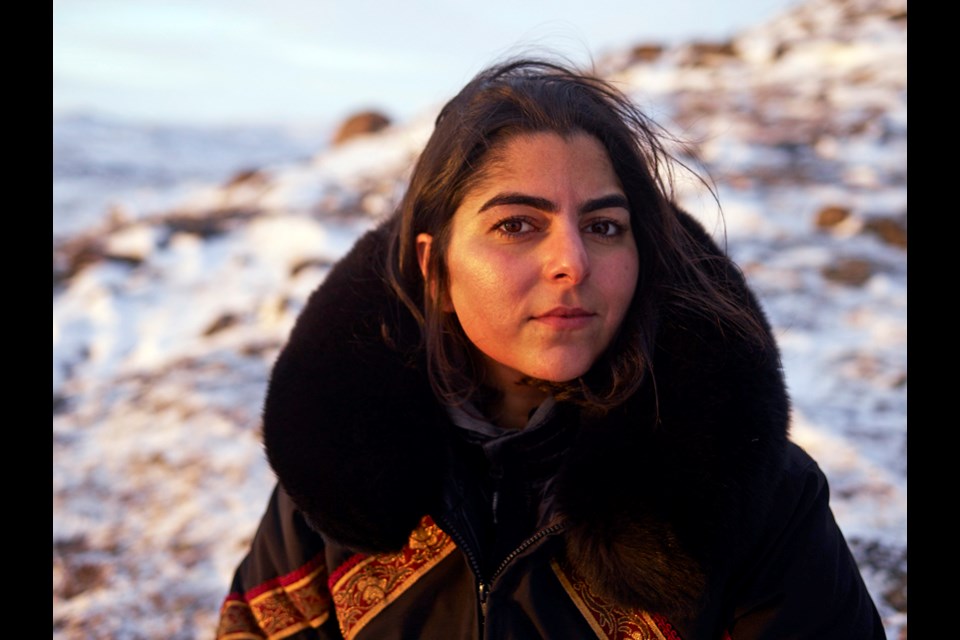His home wasn’t necessarily known for its lush landscape, so the dream was curious to Amir, who held on to the image for the next 20 months as he escaped the shaky aftermath of the Iranian Revolution and attempted to cross the Atlantic Ocean in search of a better life.
After a tumultuous journey that included beatings, imprisonment and a sense of never-ending turmoil, Amir eventually arrived in North Vancouver. When he got here, he knew he had finally found the place of his dreams. He was home.
“He fell in love at first sight of the Vancouver mountains,” says Shayda Omidvar, Amir’s daughter.
In turn, Shayda has always been enthralled by her father’s tale of ceaseless spirit and journey, ever since she was a child. Over the past few years, she’s found a way to turn her father’s personal story of the challenges that some immigrants must face – the pain, the uncertainty and ultimately, the sense of hope – into a universal tale.
Shayda, along with co-creator and fellow Handsworth Secondary grad Portia Larlee, have recently turned Amir’s story into a podcast called The Hopeful, which was produced by the Toronto-based Frequency Podcast Network.
The six-episode series was listed as Apple Podcast Canada’s Show of the Year earlier this month. The cover of the podcast features an ethereal drawing of the Lions Gate Bridge surrounded by the North Shore mountains, with a young man making his way to safe harbour.
An immigrant's journey
The story begins in the early 1980s and traces a young Amir’s disillusionment with his home country during the revolutionary crisis. When he left Iran, in 1982, the country was at war with Iraq and he was determined to leave.
Amir winds up crossing borders and mountains into Turkey, before finding his way to Spain. He makes three failed attempts to get to the U.S.
“Once war started, a lot of places did not let Iranians enter without a visa, which was a pretty hard process to acquire one and you needed to be quite financially inclined to get one,” explains Shayda.
There’s a story involving fake passports and a real dream to make it to North America via London’s Heathrow airport that didn’t pan out. There’s a tale of Amir being mercilessly beaten by customs officials in Milan and a journey to Mexico that got him inches away from his destination – before it was snatched away again and Amir was detained for not having the proper paperwork and held near Tijuana and eventually deported back to Spain.
All Amir wanted, his daughter explains, was to leave the violence and chaos back home and wind up somewhere where he could be safe and prosper.
Eventually, Amir landed in Montreal and it’s the warm welcome from Canadian officials that convinced him to stay, says Shayda.
“When he landed here and was greeted by border officers, because the greeting was so welcoming – they asked if he needed clean laundry, they asked him if he needed anything – from that moment he declared Canada his home. Canada would be the place he would stay,” she says.
A story of hope
After an unpleasant winter in Quebec, Amir came west and following a short stint in Vernon, B.C., ended up on the North Shore.
He’s since retired, but for 30 years Amir raised a family and owned Accurate Import Auto in Lower Lonsdale, where he became a fixture in the community.
“It’s really hard to walk around North Van or Lonsdale, or even do the Seawall in West Van, with my dad without being stopped after running into somebody that he knows,” jokes Shayda.
The podcast takes the form of an intimate conversation between Shayda and Amir, akin to fireside chats where Amir explains why he decided to leave Iran and how arriving in Canada impacted his life and the life of his family.
Shayda had the idea to turn Amir’s experience into a podcast as far back as 2015, when the Syrian refugee crisis emerged. Shayda, Amir and their family happened to be travelling in Turkey at the time and seeing firsthand the number of people escaping violence and hardship in search of new beginnings brought back a lot of emotions for him.
“Maybe if you tell them your story you can incite hope in them?” Shayda told him at the time.
And while the series documents a personal conversation between family members and connects it to the experience of refugees looking for a new life today, the story is ultimately a universal tale, says Shayda.
“This is a story for everybody. Given the year that we’ve had, there’s an immense sense of hopelessness and defeat,” she says. “There’s hope and happiness at the end of the tunnel.”


